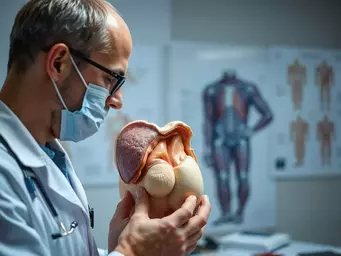TRT Administration Methods
- • Injections
- • Patches
- • Gels
- • Pellets
When it comes to managing your hormone health, understanding the ins and outs of testosterone replacement therapy (TRT) can be transformative. Many individuals experience symptoms that could indicate low testosterone levels, yet they remain unaware of the effective treatment options available. Are you ready to take charge of your health and explore how TRT could enhance your quality of life?
Testosterone Replacement Therapy (TRT) involves various methods to supplement testosterone and requires careful consideration of benefits, costs, and protocols.
When it comes to managing hormone health, understanding testosterone replacement therapy (TRT) is essential. TRT is a treatment designed to restore testosterone levels in men who have low levels due to conditions like hypogonadism. This therapy can significantly improve quality of life, but it’s vital to know what it entails before making any decisions.
At Hypogonadal Health, we are committed to helping you understand your options. Let’s delve into the fundamentals of TRT and why it might be the right path for you.
Testosterone Replacement Therapy involves various methods to supplement testosterone in the body. This can be achieved through:
Each method has its own benefits and potential drawbacks, which we will explore in detail later. Essentially, TRT aims to restore testosterone levels to a normal range, helping to alleviate symptoms associated with low testosterone.
Before jumping into therapy, it's crucial to recognize the symptoms of low testosterone, which include:
If you resonate with any of these symptoms, it's time to consider your hormone health. Remember, acknowledging these signs is the first step toward regaining vitality and well-being!
Testosterone deficiency, or hypogonadism, is a condition where the body doesn't produce enough testosterone. This can result from factors such as aging, medical conditions, or lifestyle choices. Understanding hypogonadism is critical because it can impact various aspects of health, from mood to physical performance.
Consulting with a healthcare professional, like myself at Hypogonadal Health, can help you navigate your symptoms and determine if TRT is the right solution for you. Remember, knowledge is power, and by educating yourself, you’re taking an important step toward improved health and vitality!
Have you considered how your lifestyle may be affecting your testosterone levels? Share your thoughts and experiences with us! What changes have you made or are thinking about to improve your hormone health?
When it comes to considering testosterone replacement therapy (TRT), it’s essential to make an informed decision. That’s why I always emphasize the importance of consulting healthcare professionals who specialize in hormone health. Each individual’s journey is unique, and personalized advice can help you navigate the complexities of TRT effectively.
As an endocrinologist, I’ve seen firsthand how nuanced hormone therapy can be. It's not just about boosting testosterone levels; it's about finding the right approach that suits your specific health needs and goals. Let’s explore how to make this crucial decision.
Engaging with a healthcare professional is vital in understanding whether TRT is right for you. Here are some key points to consider:
By involving a healthcare provider in your decision-making process, you can ensure a balanced approach to TRT. Remember, knowledge is power, and asking the right questions can lead to better health outcomes!
It’s essential to weigh the potential benefits of TRT against any associated costs, both financially and in terms of health. Some considerations include:
By evaluating these factors, you can better understand if the therapy aligns with your health objectives. TRT may offer numerous benefits, but it’s crucial to approach it with a clear picture of both the positive and negative aspects.
As you consider TRT, it's also essential to understand the medical guidelines surrounding it. Familiarizing yourself with TRT protocols can empower you in your health journey. The American College of Physicians also offers valuable insights into the efficacy and safety of testosterone treatment. Here are some key elements to keep in mind:
Staying informed about medical guidelines not only prepares you for therapy but also fosters a collaborative relationship with your healthcare provider. At Hypogonadal Health, we aim to provide you with the resources needed to navigate this process confidently!
TRT is a medical treatment designed to restore testosterone levels in men who have low levels due to conditions like hypogonadism, aiming to alleviate associated symptoms and improve quality of life.
TRT can be administered through various methods, including injections, patches, gels, and pellets.
Common symptoms of low testosterone include fatigue, lack of energy, decreased libido, difficulty concentrating, and increased body fat.
Consulting a healthcare professional is crucial for a comprehensive evaluation, accurate hormone level testing, and the creation of a customized treatment plan tailored to your specific health needs and goals.
When weighing the costs and benefits, consider potential improvements in mood, energy, libido, and muscle mass, as well as possible side effects, long-term health risks, and financial implications.
TRT protocols are medical guidelines that ensure effective and safe therapy. They typically include regular monitoring through blood tests, individualized treatment plans based on patient-specific factors, and informed consent regarding risks and benefits.
Here is a quick recap of the important points discussed in the article:



 What if the key to unlocking your vitality lies in understanding the hormones that influence your bo
What if the key to unlocking your vitality lies in understanding the hormones that influence your bo
 Recognizing that your environment can significantly influence your hormonal health is crucial. Have
Recognizing that your environment can significantly influence your hormonal health is crucial. Have
 Have you considered how fluctuations in your testosterone levels might affect your daily energy and
Have you considered how fluctuations in your testosterone levels might affect your daily energy and
 Trauma to the testicles can have profound effects on hormonal health, but understanding the causes a
Trauma to the testicles can have profound effects on hormonal health, but understanding the causes a